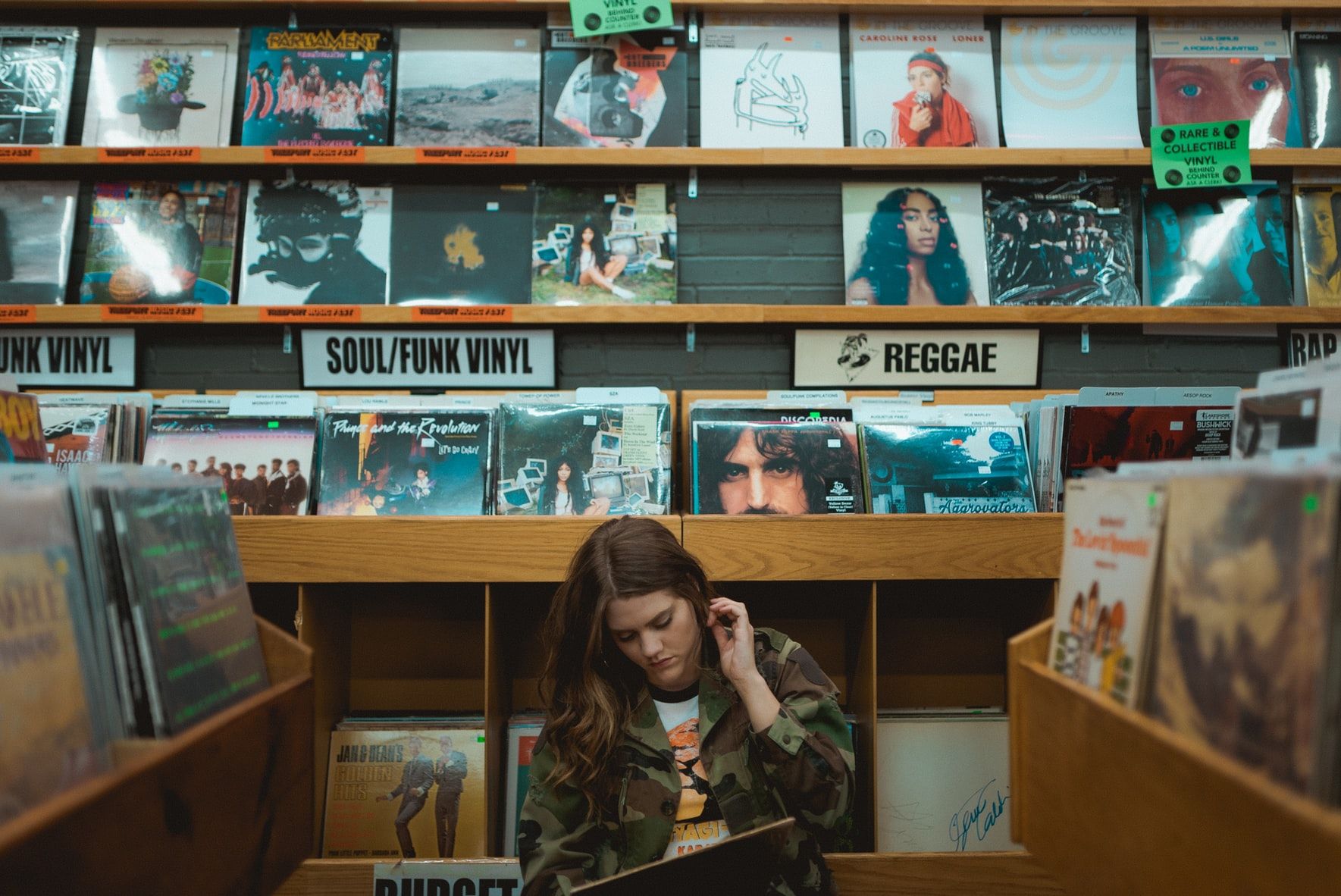The Healing Sounds of Metal & Hip Hop

The 'Stranger Things' Sound Healing Phenomenon
Stranger Things Season 4 debuted this summer with plot twists, 80s nostalgia – and a viral trend on sound healing. The use of a Kate Bush hit song as this season’s ‘unexpected hero’ drove fans to TikTok, Twitter, Reddit and every platform in between to share what song would save them from horrific fantasy dimensions (or bad days in real life).
Diverse Musical Tastes: Healing in Every Beat
The idea that ‘music saves lives’ is no shocker. But people’s answers to the trending question, which range from, ‘anything by ABBA’ to Childish Gambino’s ‘Redbone’, highlight something that’s a little less obvious – the healing power of music isn’t exclusive to just one genre. Which is just another great example of how hearing wellness isn’t exclusive to any single lifestyle, age group or background. In fact, some professionals have dedicated their time to channelling the healing powers of music genres that many people mislabel as inherently and uniquely ‘aggressive’, like hip hop, rap and heavy metal.
Redefining "Aggressive" Music Genres
Many are quick to give these genres a bad rap, mainly claiming that they support violence more than other types of music. But research, and music lovers themselves, tell a different story. Unhealthy language, themes and features are an industry-wide issue. Scores of Mozart’s opera classic, Don Giovanni are about an unhinged violent predator. 80s Jazzercise hit ‘Maniac’ was a ‘goofy’ last-minute rewrite of a song about a serial killer. Pop hits have been found to have more violent lyrical imagery than hip hop, and when asked to read lyrics (without accompanying music), study participants can’t always easily tell the difference between rap and country songs. This is not to say that all music is bad. Quite the opposite – it shows that we shouldn’t over-generalise music. Every genre has potential to perpetuate bad and good.When it comes to the therapeutic touch of music, one person’s Western classical symphony is another person’s rap or metal track. Emotional listening is subjective. What you feel while listening to a song isn’t only determined by the sound and lyrics – your feelings could also be shaped by memories, your mindset for the day, cultural stereotypes and how familiar you are with a genre. Which is why healing can come from any kind of music.Your Brain on Hip Hop
Your Brain Grooving to Hip Hop
As part of a three-piece collaboration, Mashable teamed up with Bose to investigate the science behind hip hop’s growing popularity as a wellness tool in medical communities. They explain:Hip-hop has unquestionably become the defining soundtrack of the streets. It’s a genre associated with self-expression, rags-to riches-narratives, and has experienced its fair share of controversy. Hip-hop details messages of both unity and division, and has been the backdrop for more than a few cultural movements. It’s no wonder it often elicits deeply emotional responses from listeners. Perhaps because of this emotional impact, the genre has been popping up in some unexpected places — like therapy. In recent years, “hip-hip therapy” is gaining traction among the medical community as a viable tactic for treating mental illness and cognitive disorders like depression and anxiety.Recognition for ‘the sensitive side of hip-hop’ is traced back just to the early 2000s. But the approach of hip-hop-based therapy itself relies on a longstanding technique that might sound very familiar – ‘positive visual imagery’.
The idea is that hip hop, or any art form, can make someone feel seen and heard. Just like when someone sees themselves in an actor on screen, or a character in the pages of a best seller. Dr Akeem Sule of HIP HOP PSYCH uses 2Pac’s, Me Against the World album to trace how this relatable visual imagery connects to discussions on mental health. He explains that, “what 2Pac is talking about resonates with a lot of psychosis and PTSD as well as ACEs – what’s known as adverse childhood experiences in psychiatry. This is a good album for pointing to these issues.” These connections, along with sound, set off a ‘ping pong’ game of emotions and reaction for both listeners and musicians. The Mashable feature notes that, “rappers actually enter something akin to an ‘alternate state of mind’ while freestyling. The findings are similar to other studies on the improvisation of jazz musicians – and suggest that the act of making music taps into complex creative reserves in truly astounding ways.”
Metal and Hearing Wellness
Similar benefits have been connected to heavy metal music as well. Research is exploring the genre as a conduit for healthily processing emotions and for finding a meaningful sense of community. Heavy Metal Therapy (HMT) has used the genre to build a self-help and peer support community. The platform, “is a place to find and share experiences of how metal has helped us, the meaning we take from songs or lyrics, and playlists that we have found useful.” For HMT, healthy listening doesn’t just refer to mental health goals. They use their platform to encourage safe listening habits for hearing health as well. In a blog post about tinnitus, they discuss taboos around hearing reduction in metal communities, the consequences of listening to loud music and offer space for their followers to anonymously share experiences and tips as metal lovers with tinnitus. One contributor shared: "Since we exchanged messages around Christmas, I’ve made contact with Adam (HMT roadie), and I’ve also begun listening to music again. For a year I hadn’t really tried – I was terrified that I would find the tinnitus distracting, or that it would make the tinnitus worse. It’s still early days, but at the moment I’m finding neither of these things to be true… Adam has given me some really good advice about which headphones to use. I suspect that a big part of dealing with this condition long term is going to be judicious use of technology, and avoiding devices which deliver poor quality sound (harsh, blaring, tinny etc).
The Power of Mindful Music Consumption
The approaches used by HMT, HIP HOP PSYCH and similar organisations underscore that music’s therapeutic power relies a lot on how you listen – on having a space to healthily hear, process and understand our favourite songs. So whether it’s on a couch with a therapist, alone in your room or on a drive with friends – you can take music and its healing powers with you anywhere. Even to The Upside Down. Speaking of which – what song would save you from Vecna?
